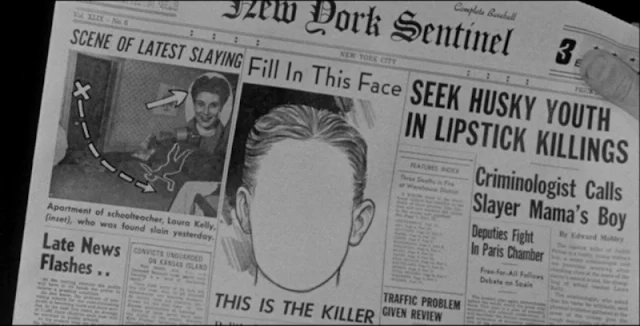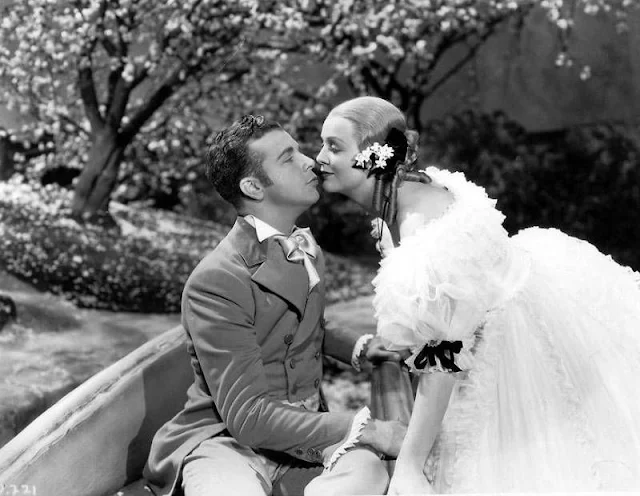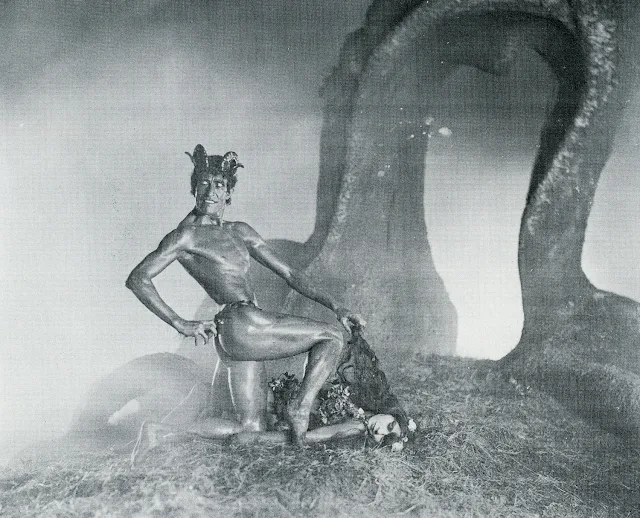A blog formerly known as Bookishness / By Charles Matthews
"Dazzled by so many and such marvelous inventions, the people of Macondo ... became indignant over the living images that the prosperous merchant Bruno Crespi projected in the theater with the lion-head ticket windows, for a character who had died and was buried in one film and for whose misfortune tears had been shed would reappear alive and transformed into an Arab in the next one. The audience, who had paid two cents apiece to share the difficulties of the actors, would not tolerate that outlandish fraud and they broke up the seats. The mayor, at the urging of Bruno Crespi, explained in a proclamation that the cinema was a machine of illusions that did not merit the emotional outbursts of the audience. With that discouraging explanation many ... decided not to return to the movies, considering that they already had too many troubles of their own to weep over the acted-out misfortunes of imaginary beings."--Gabriel García Márquez, One Hundred Years of Solitude
Search This Blog
Tuesday, March 12, 2019
While the City Sleeps (Fritz Lang, 1956)
While the City Sleeps (Fritz Lang, 1956)
Cast: Dana Andrews, Rhonda Fleming, George Sanders, Howard Duff, Thomas Mitchell, Vincent Price, Sally Forrest, John Drew Barrymore, James Craig, Ida Lupino. Cinematography: Ernest Laszlo. Art direction: Carroll Clark. Film editing: Gene Fowler Jr. Music: Herschel Burke Gilbert.
Monday, March 11, 2019
The Bad and the Beautiful (Vincente Minnelli, 1952)
The Bad and the Beautiful (Vincente Minnelli, 1952)
Cast: Kirk Douglas, Lana Turner, Dick Powell, Walter Pidgeon, Gloria Grahame, Barry Sullivan, Gilbert Roland. Screenplay: Charles Schnee, George Bradshaw. Cinematography: Robert Surtees. Art direction: Edward C. Carfagno, Cedric Gibbons. Film editing: Conrad A. Nervig. Music: David Raksin.
Sunday, March 10, 2019
Gold Diggers of 1935 (Busby Berkeley, 1935)


Cast: Dick Powell, Gloria Stuart, Alice Brady, Adolphe Menjou, Hugh Herbert, Glenda Farrell, Dorothy Dare, Wini Shaw. Screenplay: Manuel Seff, Peter Milne, Robert Lord. Cinematography: George Barnes. Art direction: Anton Grot. Film editing: George Amy.
Friday, March 8, 2019
The Magician (Rex Ingram, 1926)
Cast: Alice Terry, Paul Wegener, Iván Petrovich, Firmin Gémier, Gladys Hamer, Henry Wilson, Hubert J. Stowitts. Screenplay: Rex Ingram, based on a novel by W. Somerset Maugham. Cinematography: John F. Seitz. Art direction: Henri Ménessier. Film editing: Grant Whytock.
Tuesday, January 1, 2019
Out With the Old
New Year's Day seems like a good time to call a halt, even if it turns out to be only a temporary one, to this blog. More and more it has seemed like an obstacle to be overcome: I have books I haven't read, rooms I haven't dusted, floors I haven't mopped, and, yes, movies I haven't watched partly because I didn't want to force myself to write about them. So, Happy New Year to all, and to all a see you later.
Monday, December 31, 2018
Thursday, December 27, 2018
What I've been watching
12/23/2018: Johnny Guitar (Nicholas Ray, 1954)
12/24/2018: A Ghost Story (David Lowery, 2017)
12/25/2018: The Hurt Locker (Kathryn Bigelow, 2009)
12/26/2018: Avengers: Infinity War (Anthony Russo, Joe Russo, 2018)
12/27/2018: Thieves Like Us (Robert Altman, 1974)
12/28/2018: King of Hearts (Philippe de Broca, 1966)
12/29/2018: Tom of Finland (Dome Karukoski, 2017)
12/24/2018: A Ghost Story (David Lowery, 2017)
12/25/2018: The Hurt Locker (Kathryn Bigelow, 2009)
12/26/2018: Avengers: Infinity War (Anthony Russo, Joe Russo, 2018)
12/27/2018: Thieves Like Us (Robert Altman, 1974)
12/28/2018: King of Hearts (Philippe de Broca, 1966)
12/29/2018: Tom of Finland (Dome Karukoski, 2017)
Monday, December 24, 2018
The Prisoner of Zenda (Rex Ingram, 1922)
 |
| Ramon Novarro in The Prisoner of Zenda |
Princess Flavia: Alice Terry
Col. Zapt: Robert Edeson
Grand Duke Michael: Stuart Holmes
Rupert of Hentzau: Ramon Novarro
Antoinette de Mauban: Barbara La Marr
Capt. Fritz von Tarlenheim: Malcolm McGregor
Director: Rex Ingram
Screenplay: Mary O'Hara
Based on a novel by Anthony Hope
Cinematography: John F. Seitz
Art direction: Amos Myers
Film editing: Grant Whytock
What Rex Ingram's silent version of the old chestnut The Prisoner of Zenda needs is more Ramon Novarro as Rupert of Hentzau, the impish villain. What there is of Novarro's Rupert is delightful; more than almost any other member of the cast he shows the kind of awareness that the camera sees all, which would take him from silents into the sound era. It was near the start of his career, a year before became a star in Fred Niblo's Ben-Hur, and he's still billed as Ramon Samaniego, so it's possible that Ingram didn't fully see his potential. His Rupert is not quite as charmingly wicked as Douglas Fairbanks Jr.'s in the 1937 John Cromwell version of the Anthony Hope tale, but that's partly because Ingram chooses not to play up the role, putting Rupert amid a cadre of Black Michael's henchmen until the final climactic duel with Rudolf. Lewis Stone plays the two Rudolfs with more reserve and less dash than Ronald Colman did in 1937, and Alice Terry is pretty but rather forgettable as Princess Flavia, a role that Madeleine Carroll brought to life in the sound version. Some spectacular sets make up for the tedium of Ruritanian intrigue that threatens to stifle the film whenever Novarro isn't around.
Sunday, December 23, 2018
The Man Who Would Be King (John Huston, 1975)
 |
| Michael Caine, Christopher Plummer, and Sean Connery in The Man Who Would Be King |
Peachy Carnehan: Michael Caine
Rudyard Kipling: Christopher Plummer
Billy Fish: Saeed Jaffrey
Ootah: Larbi Doghmi
District Commissioner: Jack May
Kafu Selim: Karroom Ben Bouhi
Roxanne: Shakira Caine
Director: John Huston
Screenplay: John Huston, Gladys Hill
Cinematography: Oswald Morris
Production design: Alexandre Trauner
Film editing: Russell Lloyd
Music: Maurice Jarre
John Huston's The Man Who Would Be King is not quite the unalloyed delight I remember it being, but in large part that's because I last saw it well before we became so inextricably embroiled in conflicts in the region where the film's action takes place. We've had our consciousness raised so high about the Middle East and Central Asia that larky adventures, even ones like Rudyard Kipling's story that don't end well for the adventurers, no longer seem so amusing when they take place there. And comic natives like Ootah, religious fanatics like Kafu Selim, or even collaborators with the West like Billy Fish, feel like distasteful stereotypes. As I've said about another film drawn from a Kipling source, George Stevens's Gunga Din (1939), "I have to swallow a lot that I object to when I admit that I still like" The Man Who Would Be King. Objections swallowed, is there another film team more beautiful than that of Sean Connery and Michael Caine, who bring their previous movie personae -- including James Bond and Alfie Elkins -- so effectively into the roles of Danny and Peachy? The story goes that Huston originally saw it as a vehicle for two other vivid stars with trailing personae, Clark Gable and Humphrey Bogart, who never made a film together but should have. It would have been a very different film, of course, probably shot in black and white in the Sierra Nevada (like Gunga Din), but an entertaining one. As the years passed, the roles were handed down, at least in theory, to Richard Burton and Peter O'Toole, and then to Paul Newman and Robert Redford, until Newman supposedly knocked some sense into the producers' heads and suggested Connery and Caine. As for the film, is there more to it than just larky adventure in colorful locations? Is it, perhaps, a warning about getting involved in politics and cultures that we don't fully understand? We are still getting our heads handed to us, and they don't usually wear crowns from Alexander's treasury.
God's Own Country (Francis Lee, 2017)
 |
| Alec Secareanu and Josh O'Connor in God's Own Country |
Gheorghe Ionescu: Alec Secareanu
Deirdre Saxby: Gemma Jones
Martin Saxby: Ian Hart
Director: Francis Lee
Screenplay: Francis Lee
Cinematography: Joshua James Richards
Production design: Stéphane Collonge
Film editing: Chris Wyatt
Music: Dustin O'Halloran, Adam Wiltzie
Inevitably called "a Yorkshire Brokeback Mountain," Francis Lee's debut feature, God's Own Country has a forthrightness about gay sex that Ang Lee's more celebrated 2005 film lacked, and which, I recently noted, is also missing from the more popular Call Me by Your Name (Luca Guadagnino, 2017). There's no shyness about the mechanics of sex or about frontal male nudity -- one scene, of Johnny and Gheorghe talking together, plays out with both actors casually showing their privates. To my mind, this acceptance of the body defuses the sensationalism that "discreet" treatments, like the pan to the window in Call Me by Your Name, actually tend to heighten. It also brings the outsider status of the two men more clearly into focus -- if we can observe and accept the fact of their relationship, then why can't others? God's Own Country is otherwise a familiar -- slightly over-familiar -- story of the course of a love affair: meeting, attraction, consummation, discord, separation, resolution. Johnny is a surly lout in a bleak, unloving milieu until Gheorghe comes into his life and teaches him tenderness and self-respect. It's enough to make us want to see the other side of the story: What about Gheorghe's life in post-Ceausescu Romania made him a stronger and better person than Johnny? That said, it's a well-made film, with superlative performances from Josh O'Connor and Alec Secareanu, and beautiful support from old pros Gemma Jones and Ian Hart as Johnny's worn and weary but always crabby parents.
Subscribe to:
Comments (Atom)






































